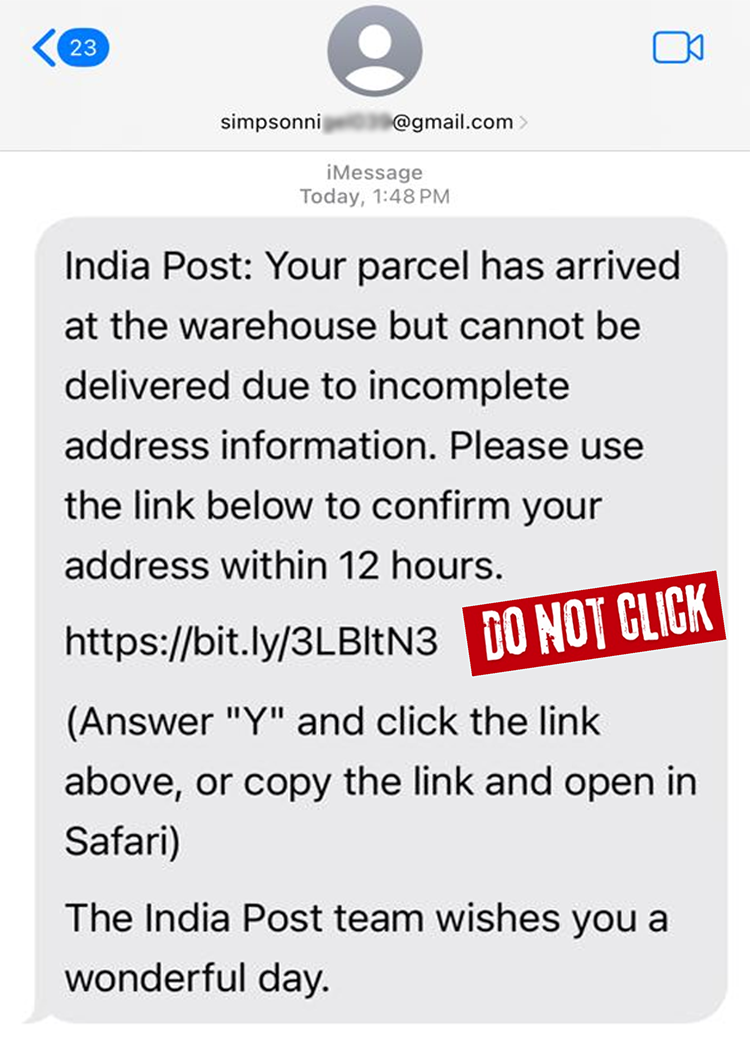Beware of the India Post Parcel Scam: Protect Yourself from Fraud

In today’s digital age, scams have become increasingly sophisticated, targeting unsuspecting individuals through various means. One such scam that has recently come to light is the India Post parcel scam. This fraudulent scheme preys on people’s trust in postal services, using deceptive messages to steal personal information and money. Here’s what you need to know to protect yourself.
What is the India Post Parcel Scam?
The India Post parcel scam involves receiving a text message or email claiming to be from India Post. The message typically states that a parcel has arrived at the warehouse but cannot be delivered due to incomplete address information. It urges the recipient to click on a link to confirm their address within a short time frame, usually 12 hours. The link, however, leads to a fraudulent website designed to steal personal information or install malware on the user’s device.

How the Scam Works
- Initial Contact: The scam begins with a message that appears to be from India Post, informing you about a parcel that couldn’t be delivered.
- Sense of Urgency: The message creates a sense of urgency, stating that you need to update your address within a limited time to avoid the parcel being returned.
- Deceptive Link: The message includes a link that supposedly allows you to update your address. Clicking on this link can lead to various malicious outcomes, such as:
Phishing: The website may ask for personal information, such as your name, address, and payment details.
Malware: The link may download malware onto your device, giving scammers access to your personal data.
How to Protect Yourself
- Verify the Source: Always check the sender’s information. Official messages from India Post will come from verified sources.
- Avoid Clicking Links: Do not click on links in unsolicited messages. Instead, visit the official India Post website or contact their customer service directly.
- Report Suspicious Messages: If you receive a suspicious message, report it to the relevant authorities. In India, you can report such scams to the Cyber Crime Cell.
- Stay Informed: Keep yourself updated on the latest scams and how to avoid them. Follow Net Protector for cybersecurity.






